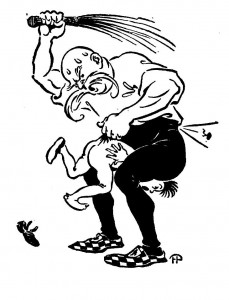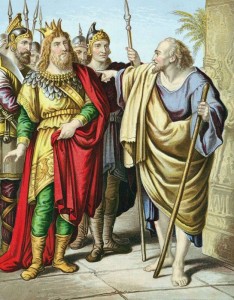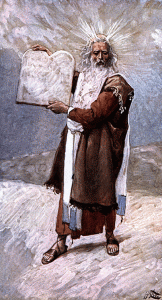This is a hard message. Few will be able to receive it. But the watchman must give it anyway (Ezekiel 33:1–11).
The Ancestry of Modern Arabs
In Genesis 32, Esau and his army stood in the way preventing Jacob and his descendants from returning to their homeland — the land YHVH had promised to them. This historical event is prophetic of what will happen in the end times as the Jews and the rest of the Israelites endeavor to receive their promised inheritance and the kingdom of Elohim.

Not only that, YHVH used Esau to test Jacob’s who had grown overly self-confident due to his business acumen and his ability to produce a large family clan. In the ancient world, he had reached the pinnacle of wealth and power. However, what mattered to YHVH more than these things was the character of a man. Would Jacob have faith in his Creator, or would he trust in his own abilities to outwit his adversaries and come out on top as he had done twice previously with his brother Esau and Laban, his uncle? Jacob’s confrontation with his brother at the threshold of the land of Israel and his wrestling with the Messenger from heaven were the two tests that he had to pass. The Bible calls this Jabob’s Trouble and prophesies that something similar will occur in the end times to Jacob’s descendants (Jer 30:7).
According to Genesis 32, Jacob divided his wives and children into two camps (Gen 32:1, 7). This was prophetic of what would eventually occur to the nation of Israel after the death of King Solomon. The one nation of Israel became two houses or kingdoms — the Northern Kingdom of Israel and the Southern Kingdom of Israel. The descendants of these two kingdoms are presently — loosely speaking — the Jews and the Christians. But who are the descendants of Esau historically and, more importantly, today. Why is it important to know?
Many, if not most of the modern Moslems (especially the Arabs) trace their lineage back if not biologically then spiritually to Ishmael, the son of Abraham by Hagar. Islam in its religious book, the Koran, claims that it was Abraham and Ishmael who founded the religion of Islam and built the Kaaba, which is the small building containing a stone that supposedly fell from heaven. This shrine is located in the midst of the great mosque in Mecca, Saudi Arabia. Of Ishmael and his descendents, the Bible prophesies in Genesis 16:11–12,
The Messenger of YHVH said to her further, “Behold, you are with child, and you shall bear a son; and you shall call his name Ishmael, because YHVH has given heed to your affliction. And he will be a wild donkey of a man, his hand will be against everyone, and everyone’s hand will be against him; and he will live to the east of all his brothers.”
The Koran has further twisted the biblical account to declare that the biblical patriarchs were Muslims and that Abraham gave the birthright blessing to Ishamael instead Isaac. Both Israelites and Arabs, therefore, believe that they have a right to the Promised Land of Canaan, and, hence, thus forming the basis for the modern Arab-Israeli conflict. Continue reading →





